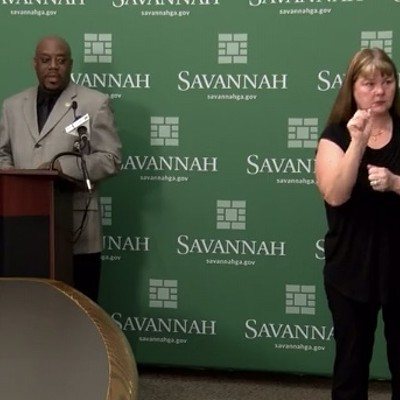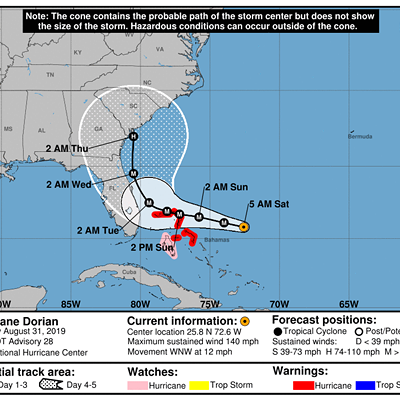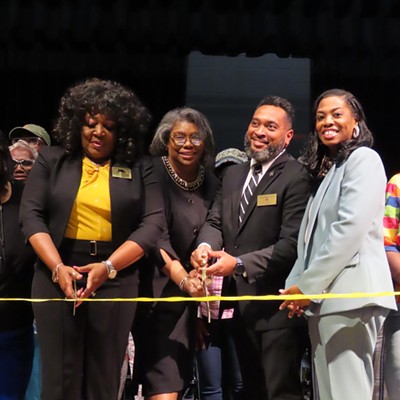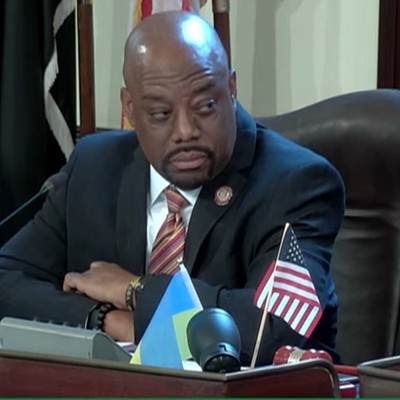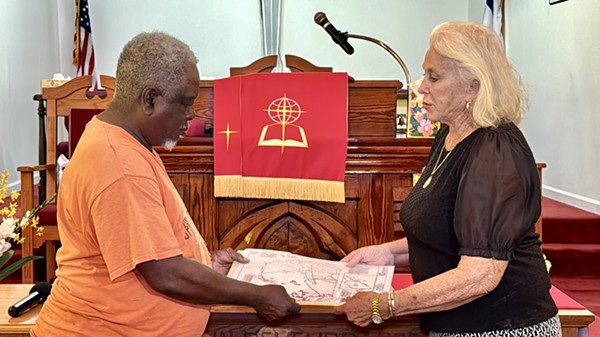PRO-CHOICE, pro-life, reproductive rights, and forced birth are just a few of the terms to describe the opposing sides of the debate on abortion. On many legislative issues, lawmakers can find some common ground, but on the abortion issue, there is no middle-of-the-road.
Georgia already had one of the most restrictive abortion laws with a ban after 20 weeks, but Brian Kemp campaigned on virtually outlawing abortion altogether.
With the 40-day Georgia legislative session beginning on Monday, January 14, it was somewhat unusual that a bill would not be filed until February 25, but that is what happened with HB 481.
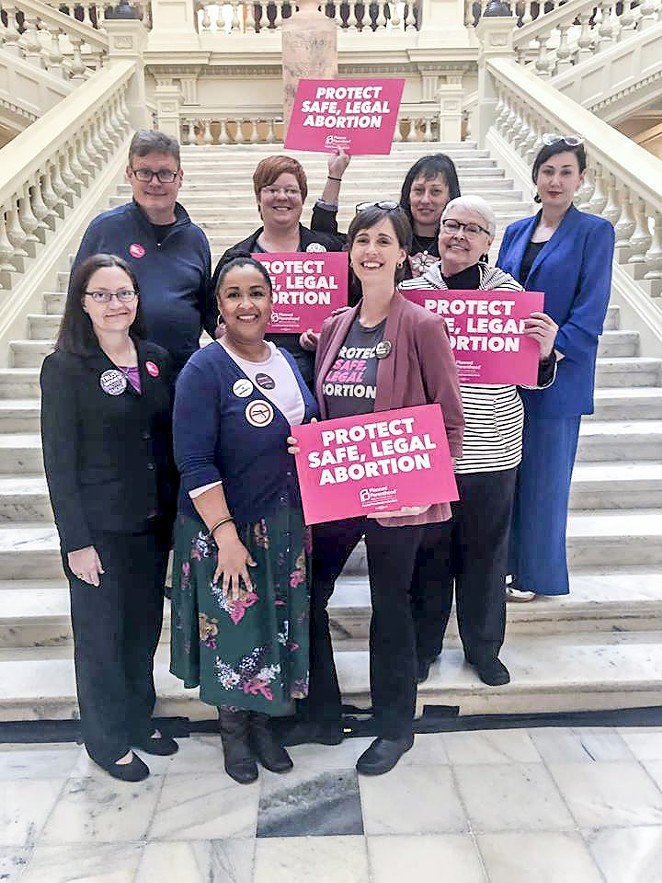
The law, coined the “heartbeat bill,” outlaws abortions after 6 weeks of pregnancy.
HB 481 passed out of the Georgia House Committee, received a third read, and a vote on the House floor all in the same day —again, unusual.
It was rushed through to pass as the last bill of the night proposed on Crossover Day, the 30th day of the session where legislation has to pass from one chamber to the next for continued consideration. A bill needs 91 votes to pass. HB 481 narrowly passed with 93 votes.
The Senate moved it through their committee and voted on the bill with an amendment on March 22. HB 481 passed the Senate with 34 yes votes.
Only one of those yes votes was cast by a female lawmaker (Senator Renee Unterman); the other 33 yes votes were cast by men.
The vote in the Senate was strictly split down party lines, with Republicans voting for the bill, and Democrats voting against the bill.
Since the Senate added an amendment, it needed another House vote. Activists on both side of the issue, for all intents and purposes, camped out at the Capitol last week. Since they didn’t call the vote on Monday or Tuesday, there was speculation that some of the original supporters of HB 481 might be getting cold feet, and since it only passed by three votes the first time, there wasn’t much wiggle room. With the bill being in disagreement, it did not need to be scheduled on the calendar and could be called at any time.
On Friday, March 29, after a late lunch recess, Representative Ed Setzer of Acworth finally called for the vote. After some debate, it passed with 92 votes, one less than the previous tally.
The vote was split largely down party lines with one Democrat, Representative Mack Jackson, voting yes, and five Republicans crossing the proverbial aisle to vote no.
So why is Georgia passing a six-week abortion ban that, for most Georgians, this will serve as an outright ban on abortion—outlawing the procedure before most women even know they are pregnant?
“This is a test case going to the Supreme Court. We want conflicting cases in different courts,” said Senator Ben Watson (R-1).
That legal battle will come at an expensive cost funded by Georgia taxpayers. But to Watson, it is worth the cost.
“When do you believe life begins? I believe that life begins at conception. Then you have to judge viability.”
Rep. Bill Hitchens (R-161) also voted yes. “I was raised to believe abortion is wrong.”
Rep. Jesse Petrea (R-166) rounded out the trio of yes votes coming from the Chatham County delegation. “Pro-life district, pro-life candidate. No one should be surprised about my yes vote.”
“I am an advocate of local control, and there is nothing more local than a women’s right to have control over her body,” said Senator Lester Jackson (D-2). “Women need to be able to choose.”
“I’ve seen a lot of abortion bills and I have never voted for one of them,” said Rep. Ron Stephens (R-164).
Rep. Carl Gilliard (D-162) was a no vote. “I am for the rights of those women and those individuals who have a right to govern their own body.”
Rep. Craig Gordon (D-163) concurred. “Let a woman’s body remain a woman’s body with those medical choices that pertain to her body.”
Rep. Mickey Stephens (D-165) was excused for the vote due to a hospitalization.
What do Savannah constituents have to say about this abortion ban?
“I support the bill because every human being is created in God’s image and because of that, has worth and value. So, if you’re able to detect a heartbeat, that’s a living human being and they deserve protection under our law. All they need is more time to grow,” said Lynnette Gibney, local pro-life advocate.
Julie Wade, District 1 School Board Member, disagrees:
“Reproductive health decisions should be made between a doctor and a patient, not a politician. HB 481 puts the government in the exam room and criminalizes doctors for performing standard medical procedures related to a woman’s reproductive health. Having a child is the most important, consequential, personal decision a woman makes in her life. That decision should not be made by politicians,” Wade says.
Coco Papy, Planned Parenthood Southeast Advocates Board Member and patient is not shy about speaking out about reproductive rights.
“The intent of ‘heartbeat bills,’ which we are seeing all across America, are part of strategic effort to have states enact a six-week bans, which will then bring about costly taxpayer funded litigation, and ultimately be the case that gets to Supreme Court, and that the court will either severely limit or overturn Roe v. Wade,” Papy says.
“It is appalling not only due to its blatant disregard to the fact that 70% of American believe in the access that Roe v. Wade allows, its unconstitutionality and its cost to tax-payers, but furthermore that in a state like Georgia where we are undergoing a statewide healthcare crisis that includes us at 48th in the nation for healthcare, #1 in the nation for maternal mortality, 46th in the nation for infant mortality, and 79 out of our 159 counties go without a OB/GYN, that we cannot seem to understand the important of expanding healthcare, not further restricting it,” she says, closing with a warning:
“Let it be known that if this passes, 2020 will be a most telling year for our state legislators.”
A very brief history of the Constitutionality of reproductive rights.
Griswold v. Connecticut (1965): Connecticut had a law that banned birth control. The Supreme Court ruled in a 7-to-2 decision for Griswold that married couples had the right to marital privacy regarding contraception. The most important part of this case was that it established a right to privacy, which is not explicit in the Bill of Rights, but through the Ninth Amendment.
Eisenstadt v. Baird (1972): The Supreme Court ruled in a 6-to-1 decision to extend the right to purchase contraception to all women. “If the right of privacy means anything,” wrote Justice William J. Brennan, Jr. for the majority, “it is the right of the individual, married or single, to be free from unwarranted governmental intrusion into matters so fundamentally affecting a person as the decision whether to bear or beget a child.”
Roe v. Wade (1973): The Supreme Court ruled in a 7-to-2 decision for Jane Roe that abortion fell within the right to privacy established in Griswold v. Connecticut and protected by the Fourteenth Amendment. This case also established the trimester designations—women have total autonomy over their pregnancy in the first trimester, states could have limited regulation in the second trimester, and virtually complete ruling over the third trimester.
Webster v. Reproductive Health Services (1989): The Supreme Court ruled in a 5-to-4 decision for Webster upholding Missouri abortion legislation, finding that the state’s restrictive laws regarding abortion were not unconstitutional. This is also the case that first brought into consideration viability testing requirements, meaning that the State’s interest in protecting life could begin at the point of viability and not birth.
Even though the Court upheld Missouri’s restrictive abortion laws, it declined to reconsider Roe v. Wade. Justice Sandra Day O’Connor established the “undue burden” test, stating that, restrictions are permissible as long as they are not “unduly burdensome.”
Planned Parenthood of Southeastern Pennsylvania v. Casey (1992): The Supreme Court ruled in a 5-to-4 decision for Planned Parenthood, reaffirming Roe and opted for the O’Connor undue burden test, which is defined as a “substantial obstacle in the path of a woman seeking an abortion before the fetus attains viability.”
Stenberg v. Carhart (2000): The Supreme Court ruled in a 5-to-4 decision and held that “Nebraska’s statute criminalizing the performance of ‘partial birth abortion[s]’ violates the U.S. Constitution, as interpreted in Casey and Roe.” The law was struck down because it placed an undue burden on a woman’s right to have an abortion and did not allow for exceptions in cases when her health was threatened.
Gonzales v. Carhart (2007): The Supreme Court ruled in a 5-to-4 decision for Alberto R. Gonzales, US Attorney General, to uphold the 2003 law passed by Congress and signed by President George W. Bush outlawing partial-birth abortions, noting that Congress’s ban on partial-birth abortions was not unconstitutionally vague and did not impose an undue burden on the right to an abortion. The Act was written to only apply to the specific intact D&E method (also known as “partial-birth abortion”), and not the more common D&E procedure.
Whole Woman’s Health v. Hellerstedt (2016): The Supreme Court ruled in a 5-to-3 decision for Whole Woman’s Health. The case was brought to the Court as a result of a 2013 Texas law (HB 2) which, in part, mandated that doctors performing abortions must have admitting privileges at a nearby hospital and required that all abortion clinics comply with standards for ambulatory surgical centers. Justice Stephen Breyer delivered the opinion for the majority which applied the undue burden standard.
In February of this year, the Supreme Court issued a stay in a 5-to-4 decision on a Louisiana abortion law that would have required admitting privileges. In an unusual move, Justice Brett Kavanaugh wrote a dissent on the stay—usually opinions are not written on stays.
So you can see with the addition of Kavanaugh to the Supreme Court why 20 states are rushing to work restrictive abortion cases up the federal court system as the liberal conservative balance of the Court has shifted.


